
Politics
18:34, 20-Dec-2018
UN goals and China: Poverty, healthcare and climate progress
Updated
18:20, 23-Dec-2018
By John Goodrich
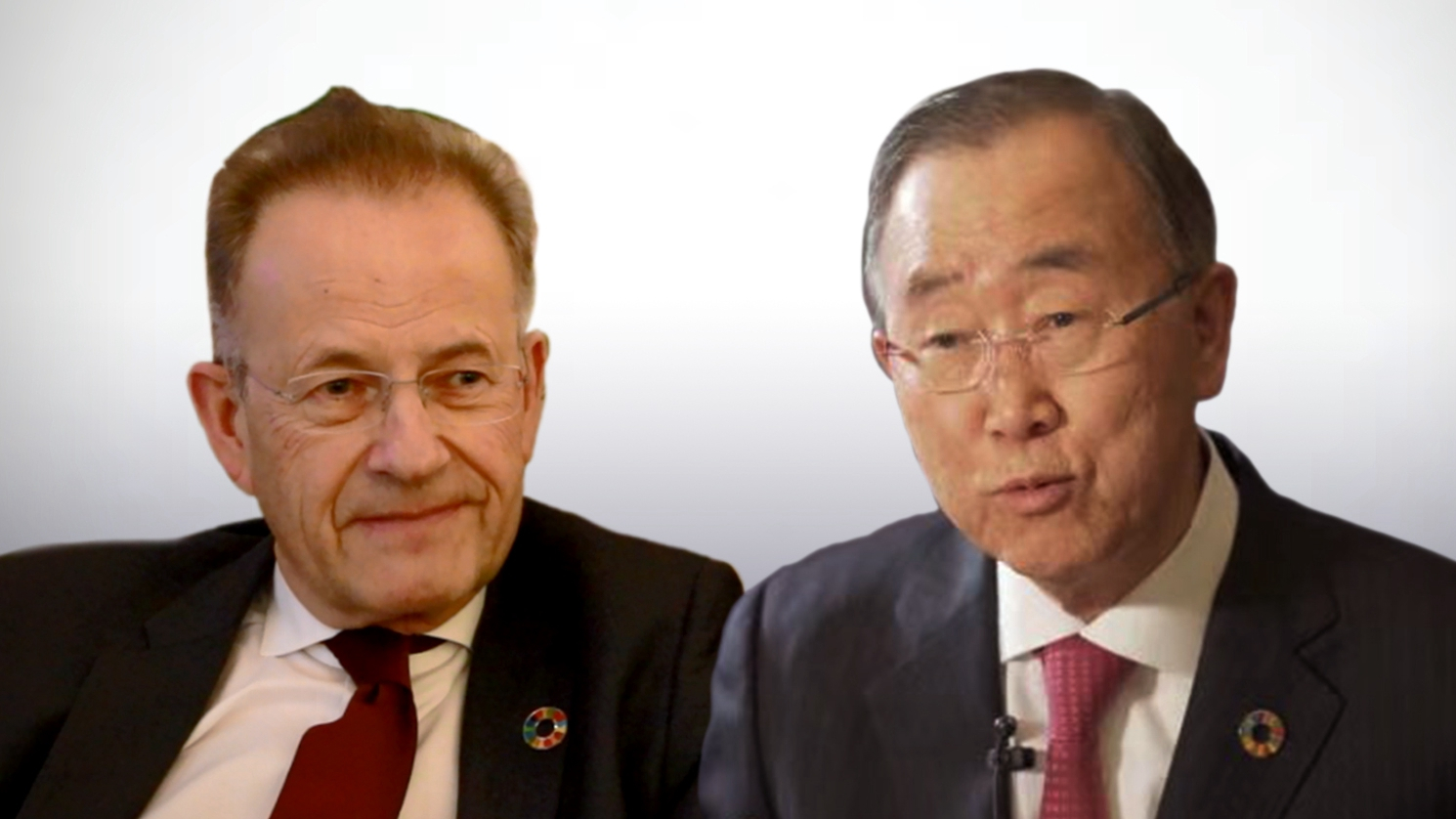
China has made progress in addressing poverty, healthcare provision and climate change, top United Nations officials past and present have told CGTN, issues that go hand in glove with the UN Sustainable Development Goals (SDGs) 2030 Agenda.
The 17 SDGs adopted by the UN in 2015 range from poverty and education to inequality and climate, interconnecting with the aim of leaving no one on the planet behind.
"It's become this extraordinary global roadmap where everybody finds themselves on the same page, and that has created a momentum that we haven't seen before," Michael Moller, the director-general of the United Nations Office at Geneva, told CGTN.
Read more:
The SDGs were adopted under the leadership of Ban Ki-moon, the UN secretary-general from 2007-2016. Ban, now chair of the Boao Forum for Asia, told CGTN "the world will be much, much better off for all the people" if the SDGs can be achieved.
"Each and every Sustainable Development Goal really has great implications for our humanity and the sustainability of our world," Ban said. "And that is why I have really been urging political leaders to take these SDGs as sole ownership, by each and every government."
01:18
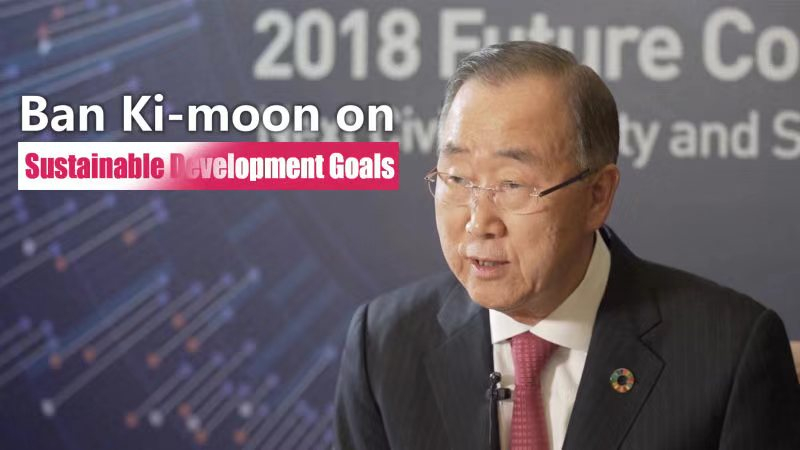
Ban highlighted the leadership shown by China on tackling climate change, recalling the moment he stood with President Xi Jinping and then U.S. President Barack Obama as they presented the Paris climate agreement instrument of ratification at the G20 Summit in Hangzhou in 2016.
"I highly commend President Xi Jinping's visionary commitment. When I was working as secretary-general, I really admired when President Xi Jinping and President Obama, on September 3, 2016 in Hangzhou at the G20 Summit, presented the instrument of ratification.
"These two countries – China and United States – accounted for minimum 38 percent of global greenhouse gas emissions. With this strong commitment and leadership, we were able to make this Paris agreement effective in the fastest way possible in the history of the United Nations."
02:25
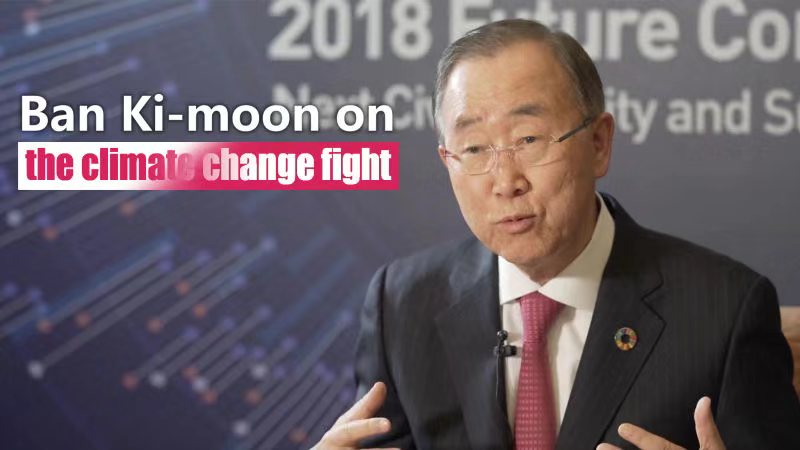
China is now well positioned to meet its target of carbon dioxide emissions peaking by 2030, according to Xie Zhenhua, the country's special representative for climate change, speaking at COP24 after negotiators agreed on a common rulebook for the Paris climate agreement, another of Ban's achievements as secretary general.
Thanks to increased investment in green energy, China's carbon intensity declined by 46 percent by 2017 from 2005, meeting ahead of schedule its target a 40-45 percent drop by 2020, according to the Ministry of Ecology and Environment.
Ban expressed concern, however, that while the fight against climate change has been largely embraced, the "full spectrum" of the SDGs has not been understood.
01:10
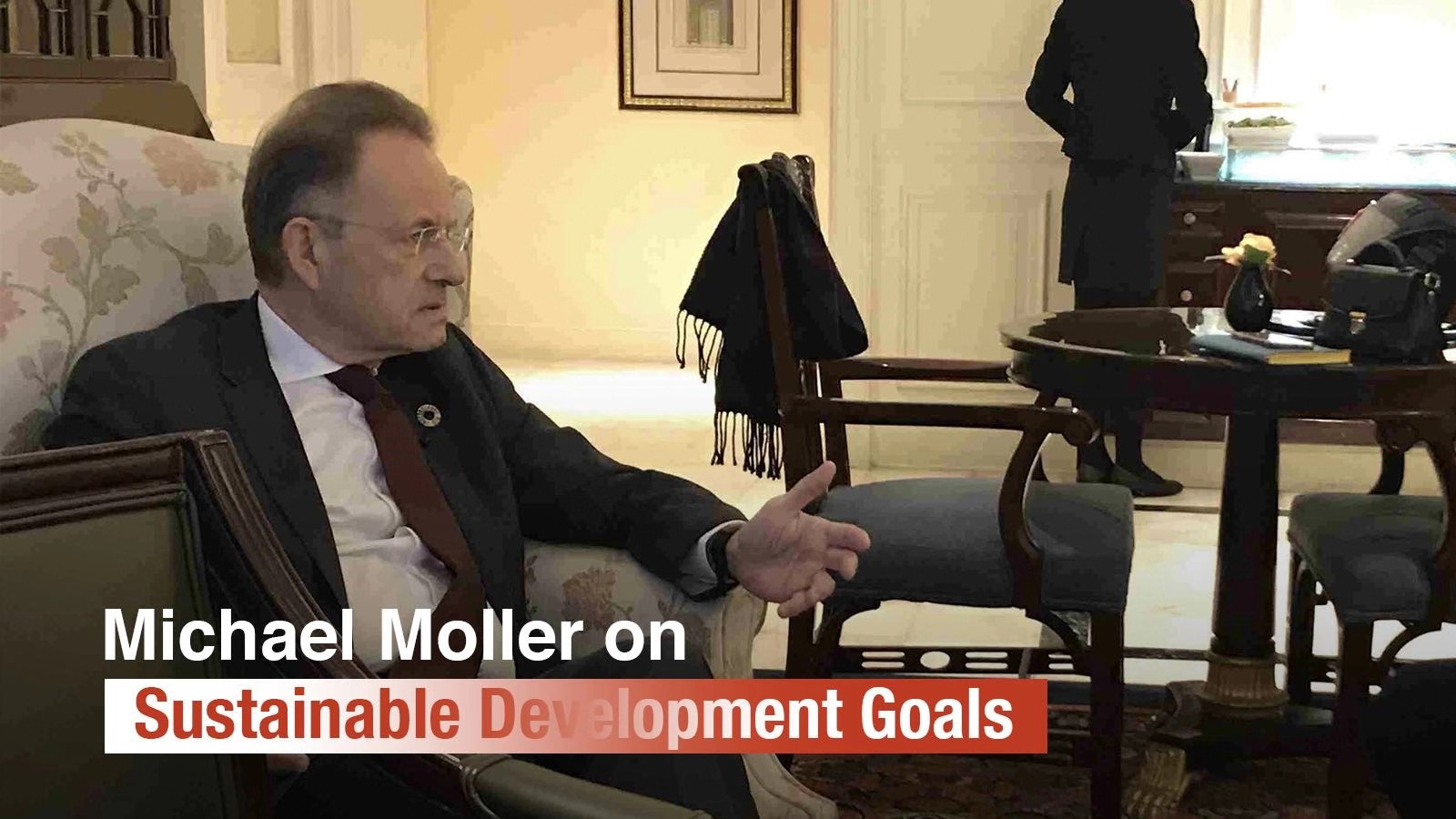
After three years of a 15-year plan Moller is confident that the SDG targets will be achieved, but cautioned that the goals are likely to be hit "asymmetrically" – some before 2030, some after.
"We're lagging behind on a whole series of areas but we're also seeing some big strides, accelerations in others," Moller said. "Whether we'll reach all the goals in a symmetric level, I don't think so by 2030. It will be asymmetric. But everyone's pushing really hard."
Ban identified Xi's call for the world to work together toward a "community with a shared future for mankind" as a vision that could help address global challenges – and the Belt and Road an initiative that can push mutual development.
00:48
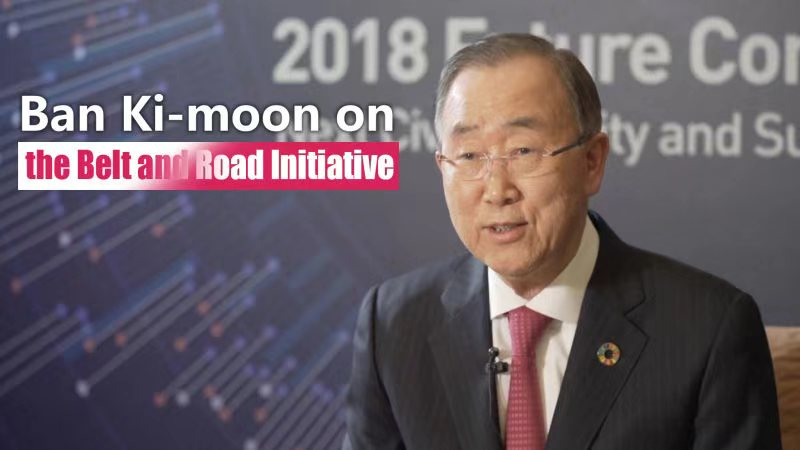
"The Belt and Road is a good example that China can show to the world as number two world economy that they are ready to share their economic benefit, industrialization benefit to many developing countries.
"I sincerely hope that this kind of vision, which was initiated by President Xi Jinping at the United Nations, creating a community of shared future, will be emulated by many other countries in the world."
Moller underlined tackling poverty and improving healthcare provision, two closely associated issues, as areas in which China has made standout progress towards the SDGs.
"They are in the process of putting in place 95 – if not more – percent health coverage for their population which is quite an achievement, an example for all."
00:33
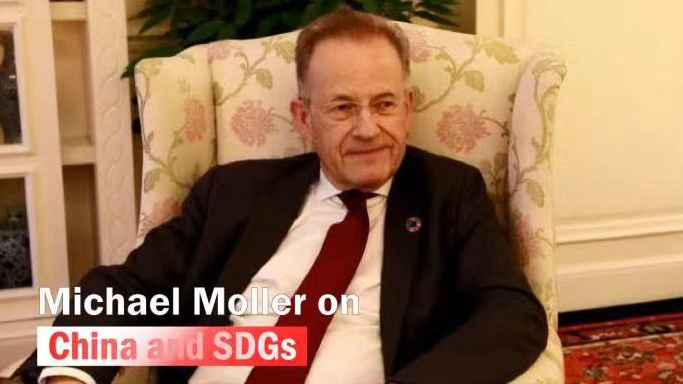
The basic health insurance program was complemented in November by a three-year work plan to increase coverage for impoverished rural residents. Basic medical insurance, major disease insurance and medical assistance should cover every rural resident by 2020, the year by which China aims to eradicate absolute poverty.
Moller noted that China "has made amazing strides over the past two decades in reducing poverty," a sentiment shared by Ban, who said in a recent interview with Xinhua that the UN Millennium Development Goal, the forerunner to the SDGs, on poverty was achieved because of China's development.
"Now that you're beginning another 40 years of reform and opening-up, I am quite confident that this will help greatly in implementing Sustainable Development Goals," Ban said.
"Again, the number one goal of Sustainable Development Goals is to eradicate all the absolute poverty around the world."

SITEMAP
Copyright © 2018 CGTN. Beijing ICP prepared NO.16065310-3
Copyright © 2018 CGTN. Beijing ICP prepared NO.16065310-3